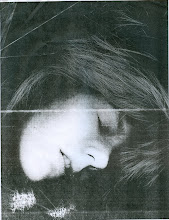Growing up, my family did not use medications unless absolutely necessary. When I flew through a double plated glass door at the tender age of 12, the doctors tried to recommend oral antibiotics to prevent my wounds from getting infected. I didn’t take them. My mom allowed me some say in my treatment, but I was already hardwired to the idea that too many antibiotics crippled children’s immune systems. Psychiatric medications were met with even greater skepticism; hyperactivity and distractibility were considered traits inherent to childhood rather than problems in need of treatment.
But sometime during my adolescence, when my mother’s own chronic illness took hold, the family policy was totally reversed. To this day, there’s a fruit bowl filled with orange plastic prescription bottles on my parent’s kitchen counter.
This year I began my own collection. My medicine cabinet is as equally filled with over the counter solutions as it is prescriptions. My collection of remedies for “GI disturbances” is particularly large. Pills to keep my crap soft, pills to prevent the crap from getting too soft. Pills to get the crap moving, pills to slow it down. There’s more than just pills stored in my bathroom; there are suppositories and enemas and medicated wipes, all with the singular purpose of replacing my youthfulness with an old woman’s sour countenance. Though I must admit, many of these products have been familiar to me since I was only 14. It was my freshman year in college when I was first forced to explain that enemas were not actually a sexual device, despite the famous fetish of Marilyn Monroe. Some people have a fetish for feet, but that doesn’t make them sex organs.
And despite my family’s change of policy, my own reluctance to take prescription medication continued into my early twenties. In the last year, many hospital staff members have been surprised at my apparent lack of experience with drugs. During one particular hospitalization, I was given a shot of morphine to relax the blood vessels around my heart. I complained to the nurse that my brain was on fire. She said, “You haven’t taken many opiates, have you? It will go away in a little bit.” Though she was not rude, she still had an annoyed tone that indicated she expected a twenty something like me to just be grateful I was being given such great narcotics. Later that night, at about 5 a.m., the nurse finally convinced me to stop watching Lifetime movies and to take a sleeping pill instead. They gave me an Ambien®. It wasn’t long before I buzzed the nurse and complained, “I feel drunk. Am I supposed to feel drunk?” She literally seemed shocked at my apparent inexperience with drugs of this kind. “Yes, that’s supposed to happen.” I slept through the night and through most of the following day, despite hourly blood draws and an ultrasound of my chest.
But after that particular lesson on the startling effectiveness of certain medications, I was taught through experience the uselessness of meds in the face of “interactions” and “contraindications”. Medications for migraines can cause heart problems, and medications for heart problems can cause migraines. When you have heart problems, you can’t eat grapefruits. When you have migraines, you shouldn’t drink coffee even though coffee helps with migraines. And when you’re anxious and tired, you are particularly screwed, for no immediate solution for one will not make the other worse.
So while I am enjoying the amazing effectiveness of my anti biotic at controlling the infection that was troubling my throat, nose, and ear, I am missing work due to the “significant gastro-intestinal disturbances” that are (according to my pharmacist) “notorious side effects” of this medication.
But I’m not complaining out of self pity. I still have health insurance and my tax-sheltered Flexible Spending Account has turned my many prescription co-pays into the help I need to pay rent. And as I’ve said before, some of the drugs still available to me have very few interactions and their side effects are on the more pleasant end of the spectrum. It’s not exactly problematic to be swimming in a sea of orange plastic bottles, but it’s definitely symptomatic. Of what, exactly? Don’t ask me. I just write this blog because I’m kind of narcissistic. And I don’t want to get rusty.
Saturday, November 21, 2009
Subscribe to:
Post Comments (Atom)


2 comments:
Being treated for endometriosis which has GI symptoms as well, it really seems to cascade once you get one medication for any condition related to digestive issues. You get medicine A, medicine A causes side effect A. Medicine B is given to you to combat side effect A, but then medicine C is needed to make sure medicine A stays effective. Soon, as you eloquently said, you're awash in those bottles. In my opinion, they should make fun-shaped prescription bottles for adults. Maybe model them after Happy Meal toys. It would be a campy, amusing consolation prize for having a disease in the first place.
--Jillian
Post a Comment